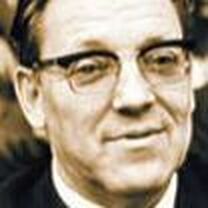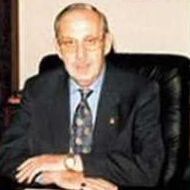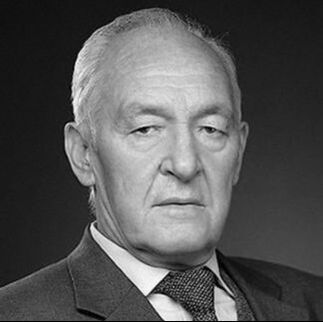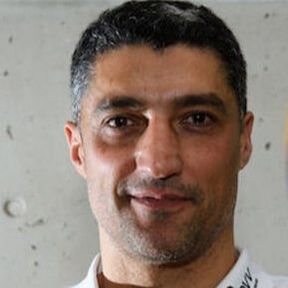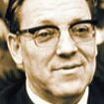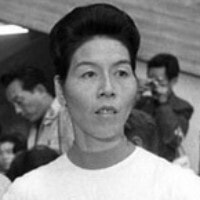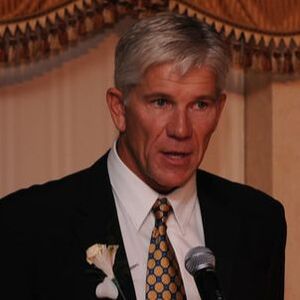BIOGRAPHY
Vladimir Ivanovich Savvine was a true volleyball champion, winning on every level of the game. However, his greatest achievements and contributions to the sport were made off the court. Savvine was a driving force behind the efforts to make volleyball an Olympic sport, as well as the Soviet Union winning the first men’s Olympic Gold Medal when the sport debuted in 1964.
Savvine was a key member of the Soviet National Team that ruled the courts during the years leading up to the founding of the Federation Internationale de Volleyball (FIVB) in 1947. He was a member of the Soviet team that won the first FIVB World Championship in 1949 in Prague and the 1951 European Championship in Paris. While still an active player with the national team, he entered into the unique role as both a player and chairman of the Soviet Volleyball Federation.
Although a dominant court player, Savvine’s kind and friendly manner off the court was well-received within the FIVB inner circle. He was known for his ability to stand up for his ideas, yet at the same time, find right and acceptable solutions to handle the issues before the board. He was also said to have a great influence on the FIVB’s first president, Paul Libaud, who called Savvine “the main FIVB developer.”
In 1953, Savvine served as secretary of the Soviet Olympic Committee and played a key role in getting volleyball on the Olympic program. He and the FIVB saw their Olympic efforts come to fruition in 1957 when the International Olympic Committee voted to recognize volleyball as an official Olympic sport beginning at the 1964 Olympic Games in Tokyo. Savvine’s workload continued to increase as he served as chairman of the Soviet Federation from 1956 to 1967, and again from 1971 to 1975. He also a vice president role within the FIVB, served on the FIVB Executive Committee and was a member of the USSR Olympic Committee from 1953 through 1975.
Savvine accepted other roles as a member of the USSR Olympic Committee Presidium from 1969 to 1975, two tenures as vice president of the FIVB’s European Commission from 1963 to 1969 and again from 1971 to 1972, and was the European Commission president from 1969 to 1971. In 1969, Savvine was made a permanent member of the Olympic Committee’s General Assembly, a position he held until his death in 1975.
A World War II veteran, Savvine was awarded the Order of Great Patriotic War second class (twice) and the Red Star Order (twice). As an athlete, he was included in the list of the strongest USSR players in 1946 and 1947. Savvine was awarded the title "USSR Honorable Master of Sports” in 1949.
As an accomplished writer, he authored the books "Yesterday, Today and Tomorrow of International Olympic Committee" (1973), “Modern Olympic Movement" (1970), and "Results of Winter Olympic Games 1972" (1973). Savvine was the founding father of the European Champions Cup for women’s club teams vying for the prize of “Sovetskij Sport.”
Awarded the FIVB Silver Medal, we now welcome Vladimir Ivanovich Savvine as a 2008 Inductee to the Volleyball Hall of Fame.
Savvine was a key member of the Soviet National Team that ruled the courts during the years leading up to the founding of the Federation Internationale de Volleyball (FIVB) in 1947. He was a member of the Soviet team that won the first FIVB World Championship in 1949 in Prague and the 1951 European Championship in Paris. While still an active player with the national team, he entered into the unique role as both a player and chairman of the Soviet Volleyball Federation.
Although a dominant court player, Savvine’s kind and friendly manner off the court was well-received within the FIVB inner circle. He was known for his ability to stand up for his ideas, yet at the same time, find right and acceptable solutions to handle the issues before the board. He was also said to have a great influence on the FIVB’s first president, Paul Libaud, who called Savvine “the main FIVB developer.”
In 1953, Savvine served as secretary of the Soviet Olympic Committee and played a key role in getting volleyball on the Olympic program. He and the FIVB saw their Olympic efforts come to fruition in 1957 when the International Olympic Committee voted to recognize volleyball as an official Olympic sport beginning at the 1964 Olympic Games in Tokyo. Savvine’s workload continued to increase as he served as chairman of the Soviet Federation from 1956 to 1967, and again from 1971 to 1975. He also a vice president role within the FIVB, served on the FIVB Executive Committee and was a member of the USSR Olympic Committee from 1953 through 1975.
Savvine accepted other roles as a member of the USSR Olympic Committee Presidium from 1969 to 1975, two tenures as vice president of the FIVB’s European Commission from 1963 to 1969 and again from 1971 to 1972, and was the European Commission president from 1969 to 1971. In 1969, Savvine was made a permanent member of the Olympic Committee’s General Assembly, a position he held until his death in 1975.
A World War II veteran, Savvine was awarded the Order of Great Patriotic War second class (twice) and the Red Star Order (twice). As an athlete, he was included in the list of the strongest USSR players in 1946 and 1947. Savvine was awarded the title "USSR Honorable Master of Sports” in 1949.
As an accomplished writer, he authored the books "Yesterday, Today and Tomorrow of International Olympic Committee" (1973), “Modern Olympic Movement" (1970), and "Results of Winter Olympic Games 1972" (1973). Savvine was the founding father of the European Champions Cup for women’s club teams vying for the prize of “Sovetskij Sport.”
Awarded the FIVB Silver Medal, we now welcome Vladimir Ivanovich Savvine as a 2008 Inductee to the Volleyball Hall of Fame.
|
|
|
CLASS OF 2008
|
|
|
|

